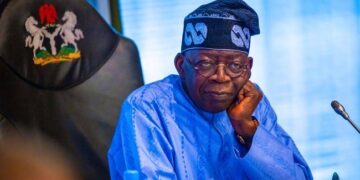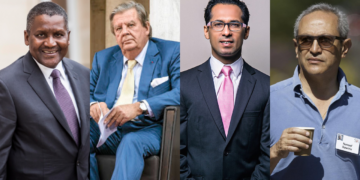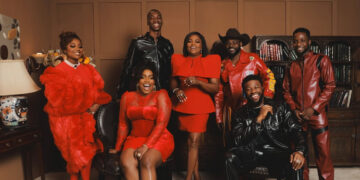While surfing online the other day, I came across a question that someone asked on one of the online forums I belong. I read through the answers that people dropped and I laughed.
Why? Because Afrobeats has grown beyond its regional roots to captivate a global audience. Its pulsating beats, infectious rhythms, and lyrical diversity have made it a phenomenon, especially among younger generations. But is Afrobeats popular in the USA?
In this blog post, we will discuss the history, cultural exchange, and current impact of Afrobeats in the U.S., exploring whether it has secured a permanent foothold in the American music industry.
A Brief Overview of Afrobeats
Afrobeats is often mistakenly conflated with Afrobeat, the genre pioneered by Nigerian legend Fela Kuti. However, while Afrobeat is deeply rooted in jazz, funk, and traditional African sounds, Afrobeats is a contemporary evolution. Emerging in the 21st century, it fuses traditional African rhythms with elements of hip-hop, dancehall, R&B, and electronic music. Artists like Wizkid, Burna Boy, and Davido are at the forefront, shaping the genre into a global force.
Afrobeats’ Initial Reception in the USA
This article wouldn’t be complete if this section is not covered. Let’s get something straight and this is based on my research, Afrobeats began to gain traction in the U.S. during the early 2010s, largely due to the diaspora community.
African immigrants introduced the genre at parties, weddings, and cultural festivals. Songs like Oliver Twist by D’Banj and Azonto by Fuse ODG started making waves, signaling Afrobeats’ entry into the international music scene.
However, the genre truly began turning heads in mainstream American circles with collaborations between African and American artists. Wizkid’s feature on Drake’s One Dance in 2016 was a watershed moment, as the song topped charts worldwide and brought Afrobeats to a broader audience.
The Rise of Afrobeats on Streaming Platforms
The explosion of streaming services like Spotify, Apple Music, and YouTube has been instrumental in popularizing Afrobeats in the U.S. These platforms democratized access to music, enabling fans to discover artists across borders. Curated playlists such as Spotify’s Afrobeats Hits and Apple Music’s Africa Now introduced millions of listeners to the genre, solidifying its presence in the global market.
Moreover, viral moments on social media platforms like TikTok have played a crucial role. For instance, CKay’s Love Nwantiti went viral on TikTok in 2021, reaching millions of users and charting on the Billboard Hot 100. The ability of Afrobeats songs to inspire dance challenges and trends has made them particularly appealing to younger audiences in the U.S.
Key Artists Driving Afrobeats in the USA
Several artists have been pivotal in popularizing Afrobeats in the United States:
1. Wizkid: Wizkid is arguably one of the most recognizable faces of Afrobeats in the U.S. His 2020 hit Essence featuring Tems, which later included Justin Bieber on the remix, became a summer anthem and earned a Grammy nomination. Essence is often referred to as the “song of the summer,” a testament to its cross-cultural appeal.
2. Burna Boy: Known for his Afro-fusion style, Burna Boy’s 2019 album African Giant introduced him to a global audience. His subsequent album, Twice as Tall, won a Grammy for Best Global Music Album in 2021, cementing his status as a global superstar. Burna Boy has performed at major venues in the U.S., including Madison Square Garden.
3. Davido: Davido’s collaborations with American artists like Chris Brown and Nicki Minaj have expanded his reach. His song Fall became the longest-charting Nigerian pop song on the Billboard charts, highlighting Afrobeats’ growing influence.
4. Tems: With her sultry voice and distinct sound, Tems has become a sensation in the U.S. She has collaborated with global icons such as Drake and Rihanna, and her feature on Wizkid’s Essence propelled her to international stardom.
Cultural Significance of Afrobeats in the USA
The popularity of Afrobeats in the U.S. goes beyond music—it represents a cultural exchange and a celebration of African heritage. For many African Americans, Afrobeats offers a connection to their ancestral roots, creating a shared cultural experience.
Events like Afropunk festivals, Afrobeat concerts, and African-themed parties are increasingly common in major U.S. cities such as New York, Atlanta, and Houston. These events provide platforms for cultural appreciation and reinforce the bond between African and African American communities.
Afrobeats and Mainstream Media
Afrobeats’ rise has also been reflected in its presence in mainstream American media. Songs like Ye by Burna Boy and Essence have been featured in commercials, TV shows, and movies. Additionally, platforms like BET and the Grammys have begun recognizing Afrobeats artists, giving them opportunities to perform and showcase their talent on global stages.
The inclusion of Afrobeats categories in major music awards is another milestone. In 2022, the Grammys introduced a “Best Global Music Performance” category, where Afrobeats songs have found recognition. Similarly, MTV and the BET Awards have created specific categories to honor African artists, acknowledging the genre’s growing influence.
Future of Afrobeats in the USA
The future looks bright for Afrobeats in the United States. With more artists collaborating across borders, the genre is poised to become even more mainstream. Emerging platforms like Spotify’s Afro Hub and efforts by artists to organize U.S. tours indicate a long-term strategy to solidify Afrobeats’ presence.
Moreover, as more Americans explore African culture through fashion, film, and art, Afrobeats will likely continue to thrive as a cultural touchstone. The genre’s ability to adapt and innovate ensures its relevance in an ever-evolving music landscape.
Conclusion
So, is Afrobeats popular in the USA? The answer is a resounding yes. While it may not yet rival genres like pop or hip-hop in terms of mainstream airplay, its impact is undeniable. From sold-out concerts to chart-topping singles and viral dance trends, Afrobeats has become a defining sound of the global music scene.
As the genre continues to evolve, its popularity in the U.S. will likely grow, cementing its place as a cultural and musical bridge between Africa and the world. Afrobeats is more than just a genre—it’s a movement, and its rhythm is here to stay.




































Discussion about this post